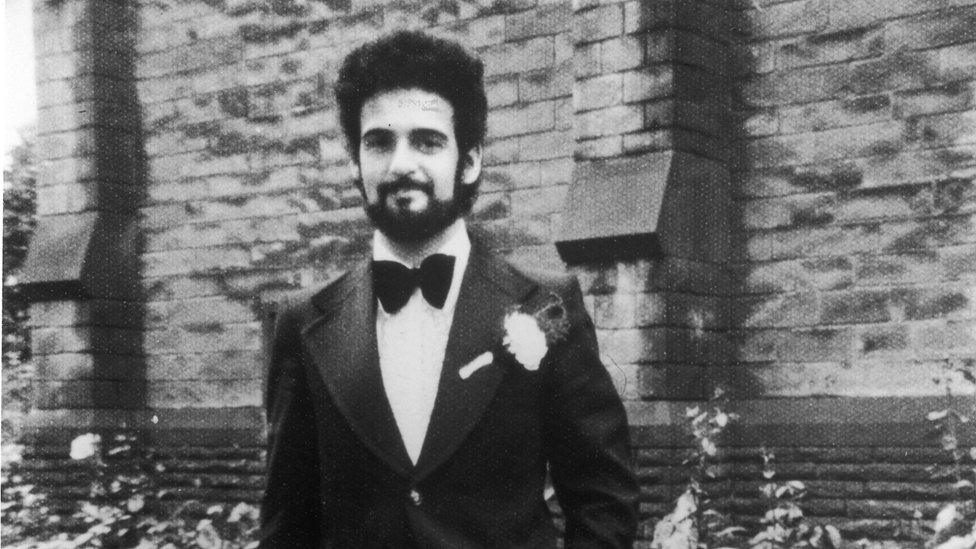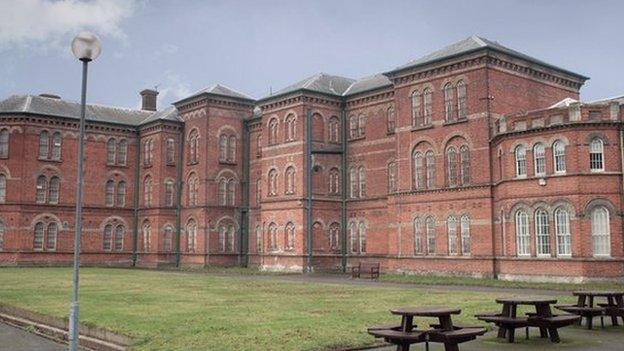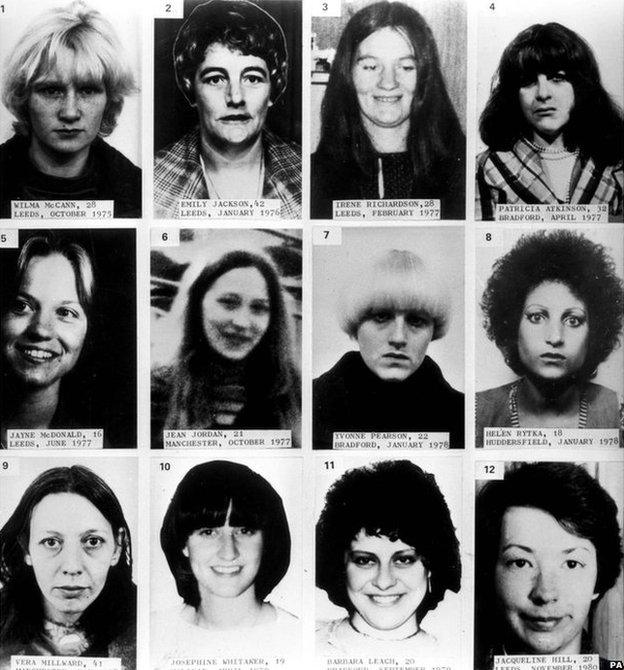Yorkshire Ripper Peter Sutcliffe 'facing Broadmoor exit'
- Published

Peter Sutcliffe was moved to Broadmoor in 1984
Yorkshire Ripper Peter Sutcliffe's mental health has improved and he could be returned to jail.
The serial killer, 69, who was convicted of murdering 13 women, has been housed at high-security Broadmoor Hospital in Berkshire since 1984.
The BBC understands a report by medical experts suggests he be moved from the psychiatric unit to prison.
The Ministry of Justice said the final decision would be made by Justice Secretary Michael Gove.
Decisions to move prisoners from secure hospitals are based on "clinical assessments" by independent medical staff, it said.
Any transfer back to prison is likely to take in the region of six months.
'Only right'
The son of Sutcliffe's first victim Wilma McCann said he was willing to leave the decision to medical experts and had let go the anger over what had happened to his mother.
Richard McCann said: "My initial thoughts were that, in the grand scheme of things, it doesn't really change a great deal for us; it does not bring Mum back.
"But, having thought about it, I've woken up thinking it's only right that he's returned to prison, as is any prisoner who is deemed fit to return to prison.

Some of the UK's most dangerous offenders reside at Broadmoor
"There is a difference between Broadmoor and prison, but I'm not in a position where I'm full of anger and hatred and want to see him in a cell.
"I am not sure whether he needed to be in Broadmoor or not, but what I do believe is, he is ill, he must have been ill to have done the things that he did.
"It is 40 years since it happened and I'll let the professional make the decisions. Hopefully they've made the right one."
Former lorry driver Sutcliffe was originally held in HMP Parkhurst on the Isle of Wight following his conviction in 1981 for the murder of 13 women.

Twelve of the 13 women Sutcliffe was convicted of murdering between 1975 and 1980 in West Yorkshire and Greater Manchester (Marguerite Walls not pictured)
He was later moved to Broadmoor after he was diagnosed with paranoid schizophrenia.
David K Ho, a consultant forensic psychiatrist who has previously worked at Broadmoor, said the decision would have been made by the staff who were treating Sutcliffe.
"Loosely speaking, schizophrenia is a little like diabetes in the sense that when you treat it its symptoms get less, when you stop treating it, it may recur," said Dr Ho.
"So I don't think it's the case that his mental disorder has completely been cured, but I think it perhaps has reached a stage where its symptoms are under control."

Schizophrenia
Schizophrenia is a diagnosis doctors use if someone is experiencing a cluster of psychological symptoms.
These include "psychotic experiences, such as hearing voices or seeing things that don't exist (hallucinations) and having unusual beliefs that are not based on reality (delusions).
There are different subtypes of schizophrenia - paranoid schizophrenia is one example and this is when the person experiences false beliefs of being persecuted or plotted against.
Schizophrenia is a fairly common mental health condition, affecting about one in every 100 people.

He said it was not uncommon for patients to be returned to prison after a long period of assessment and treatment.
Dr Ho added that while a psychiatrist makes a recommendation pertaining to the Mental Health Act, the approval for a transfer needs to come from the Ministry of Justice.
In 2010, the High Court ordered that Sutcliffe, who was given 20 life sentences, should never be released.
Brian Dow, director of external affairs at the charity Rethink Mental Illness, said: "There's no cure as such. There's no medication that will make it go away, but people will often be able to manage their symptoms to a point where they can lead a very normal life.
"Presumably... he is sufficiently well that he no longer needs to be treated in a clinical setting.
"That's very possible as the treatments he may have had may have got him to a point where they deem him to be able to be incarcerated in a prison rather than a high-security ward."
- Published1 December 2015

- Published9 March 2011
- Published16 July 2010
- Published16 July 2010